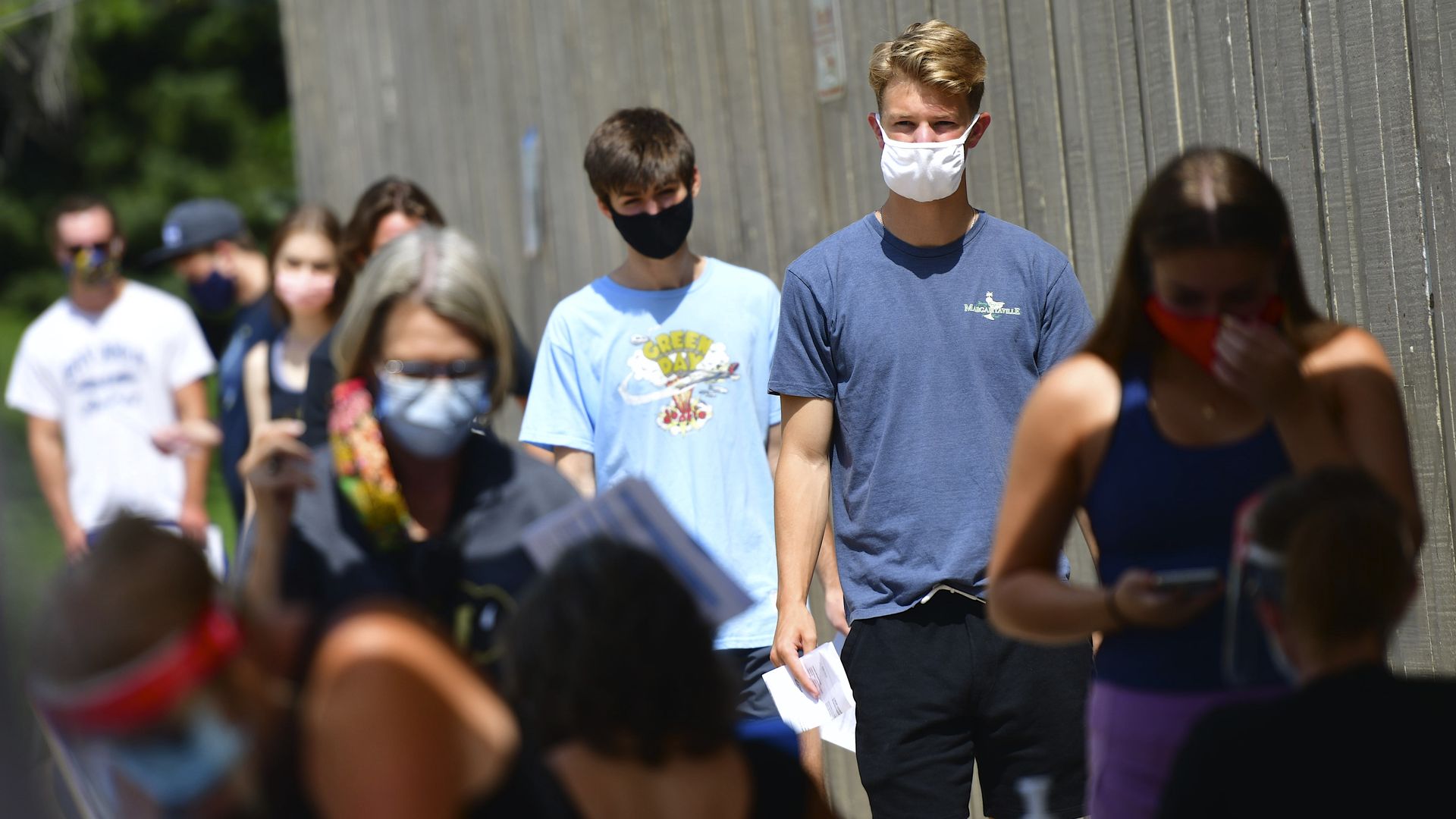Aug 18, 2020 - Health
WHO says young people are driving the spread of coronavirus
Add Axios as your preferred source to
see more of our stories on Google.

Students in Boulder, Colorado, on Aug. 18. Photo: Mark Makela/Getty Images
Add Axios as your preferred source to
see more of our stories on Google.

Students in Boulder, Colorado, on Aug. 18. Photo: Mark Makela/Getty Images